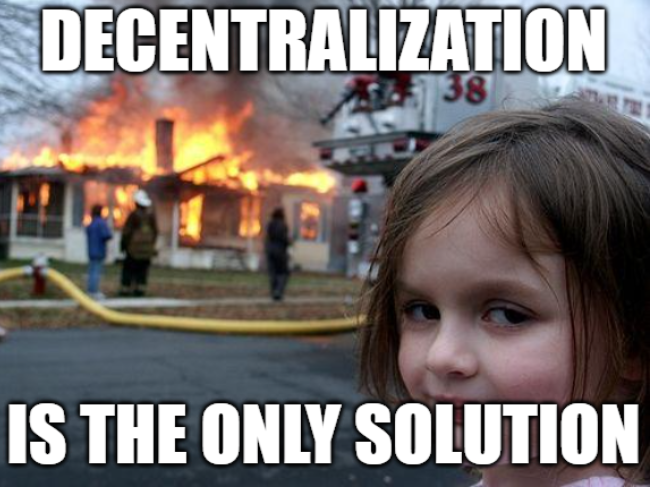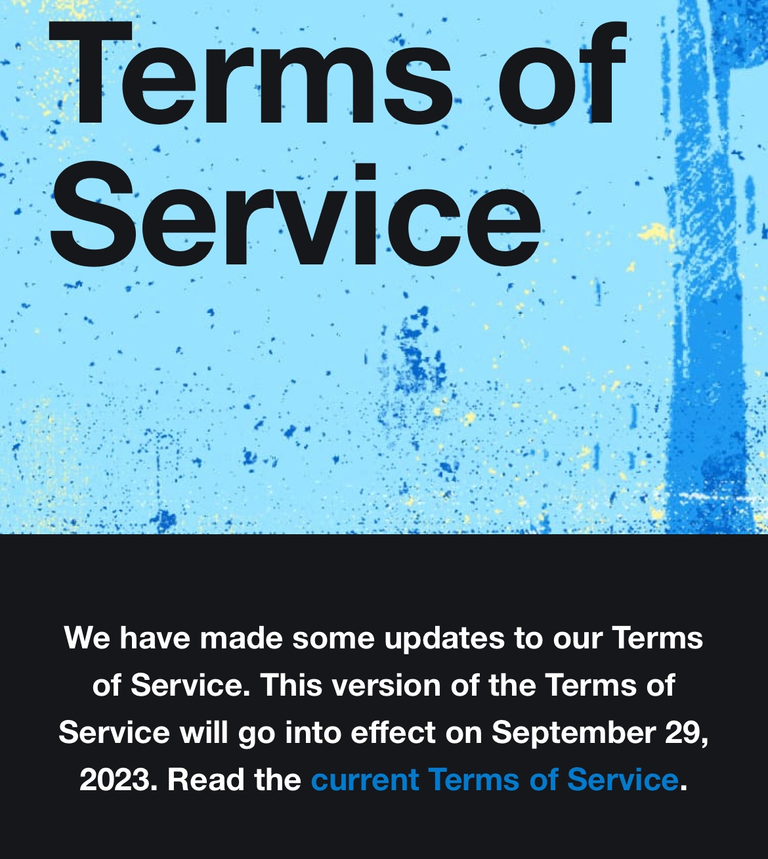The Iceberg Problem: Why Decentralization is the Only Solution for the 21st Century Internet
Introduction:
The recent update to X's terms of service has raised eyebrows and concerns among many. However, this is just the tip of the iceberg of a much larger problem that looms in the digital world: centralization. In a world dominated by a few tech giants, the power dynamics are skewed, and the control is concentrated in the hands of a few. We will delve deeper into the underlying issues of centralization and discuss why decentralization is the only viable solution for the 21st century.

The Problem with Centralization:
Centralization refers to the concentration of control and decision-making in a single entity or a small group of entities. This is evident in various aspects of our daily lives, from the government to the corporations that dominate the market. The recent changes in X's terms of service, including the insertion of wording that allows X to use data on the platform to train AI models, collect metadata for encrypted messages, and store data related to a user's biometric information, are just a few examples of the control that centralized entities exert over users.
The Risks of Centralization:
- Data Privacy: Centralized platforms have control over user data, leading to privacy concerns and the potential misuse of data.
- Censorship: Centralized entities have the power to control the narrative, leading to the suppression of voices and perspectives that do not align with their interests.
- Monopoly: Centralization leads to a monopoly, limiting competition and innovation in the market.
The Solution: Decentralization
Decentralization is the process of distributing authority, decision-making, and control across a network, rather than concentrating it in a single central authority. It is the foundation of Web 3.0 and represents a shift from the centralized internet to a decentralized one. Decentralization addresses the risks associated with centralization by:
- Ensuring Data Privacy: In a decentralized network, user data is not controlled by a single entity, ensuring privacy and preventing misuse of data.
- Promoting Freedom of Expression: Decentralization allows for a diversity of voices and perspectives, preventing censorship and promoting freedom of expression.
- Fostering Innovation: Decentralization promotes competition and innovation by breaking down monopolies and allowing for the development of new ideas and solutions.

Conclusion:
The recent changes to X's terms of service are just the tip of the iceberg of the problems associated with centralization. Decentralization is the only viable solution to address the risks of data privacy, censorship, and monopoly associated with centralization. It is time for us to embrace decentralization and build a better digital future for all.
P.S.
As far as I know, we are very familiar with Hive already however this post will be shared on Twitter as a long tweet so I may sound as a broken record promoting Hive to be a solution in a real-world problem.
Join our Telegram group on this link if you love participation in a call to action like this
https://t.me/hivetwitter

Posted Using LeoFinance Alpha
https://twitter.com/Edger_K/status/1706108136262598788
https://twitter.com/djbravo121741/status/1706126275436253451
Congratulations @hive-data! You have completed the following achievement on the Hive blockchain And have been rewarded with New badge(s)
You can view your badges on your board and compare yourself to others in the Ranking
If you no longer want to receive notifications, reply to this comment with the word
STOPCheck out our last posts:
https://twitter.com/jewellery_all/status/1706211413306531880
https://twitter.com/LovingGirlHive/status/1706250286149620001
https://twitter.com/cbit_roxana_mdh/status/1706273957064683542?t=dfLSbpiD9DiUHAN4_6mGng&s=19
https://twitter.com/hivevirtual/status/1706284471970861198
https://twitter.com/AdekuOjo/status/1706288898819715298?t=KC4vjASH4IDJxMtPxiw6Hg&s=19
https://twitter.com/Itwithsm_/status/1706293354894631189
https://twitter.com/Rammybabans/status/1706309488729280547?t=CZaR87HPwbCKqpJwN-NrnQ&s=19
https://twitter.com/lee19389/status/1706321571839623260
#hive #posh